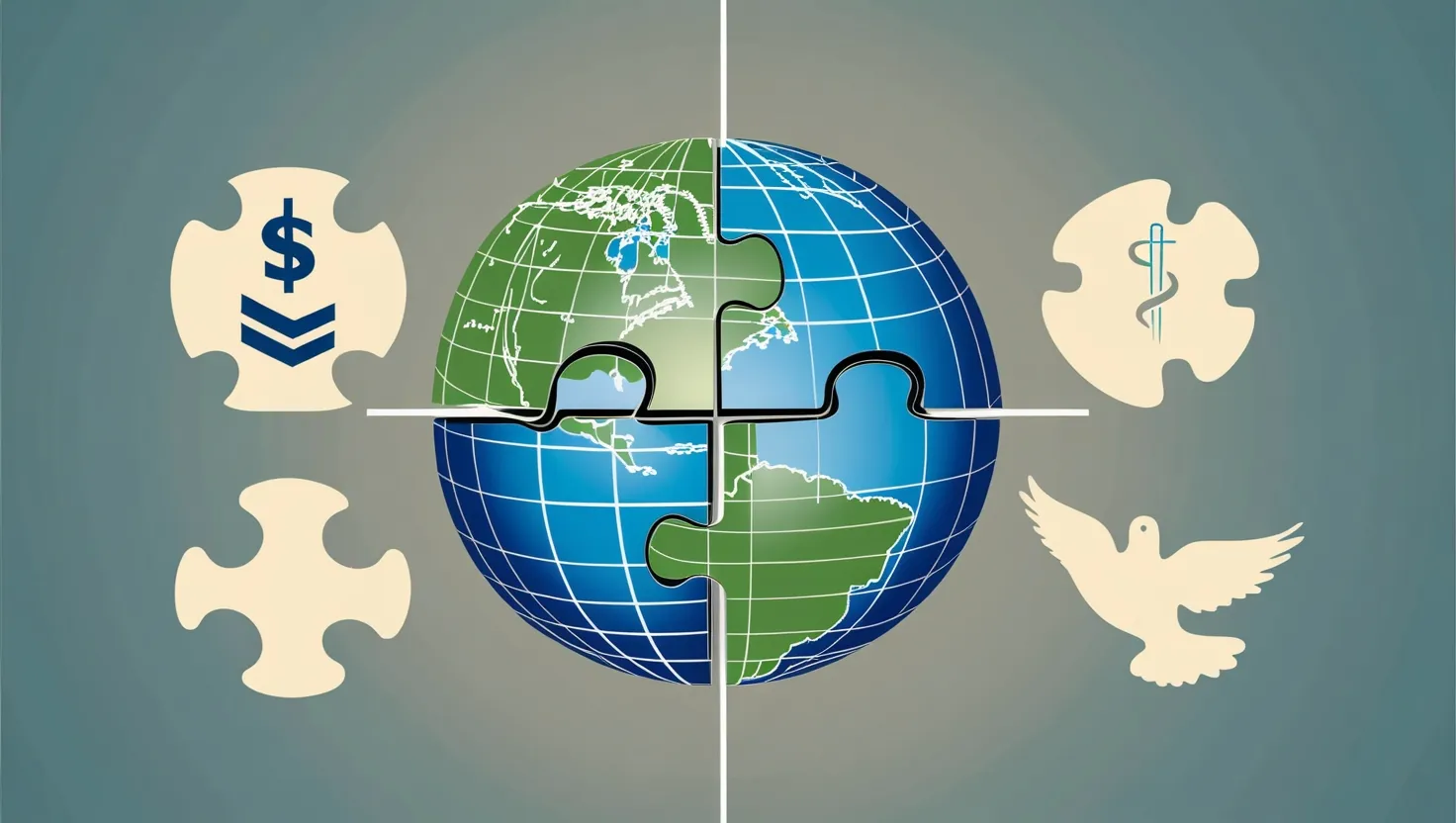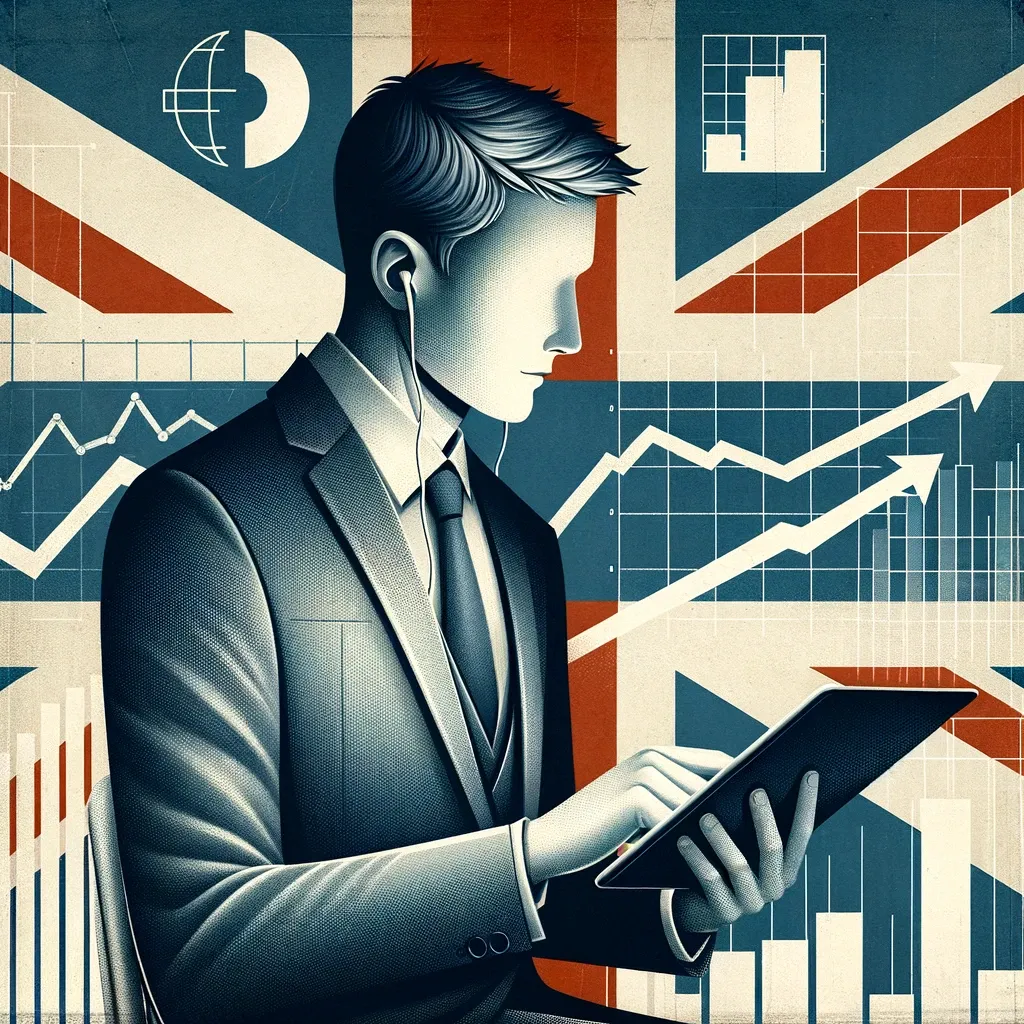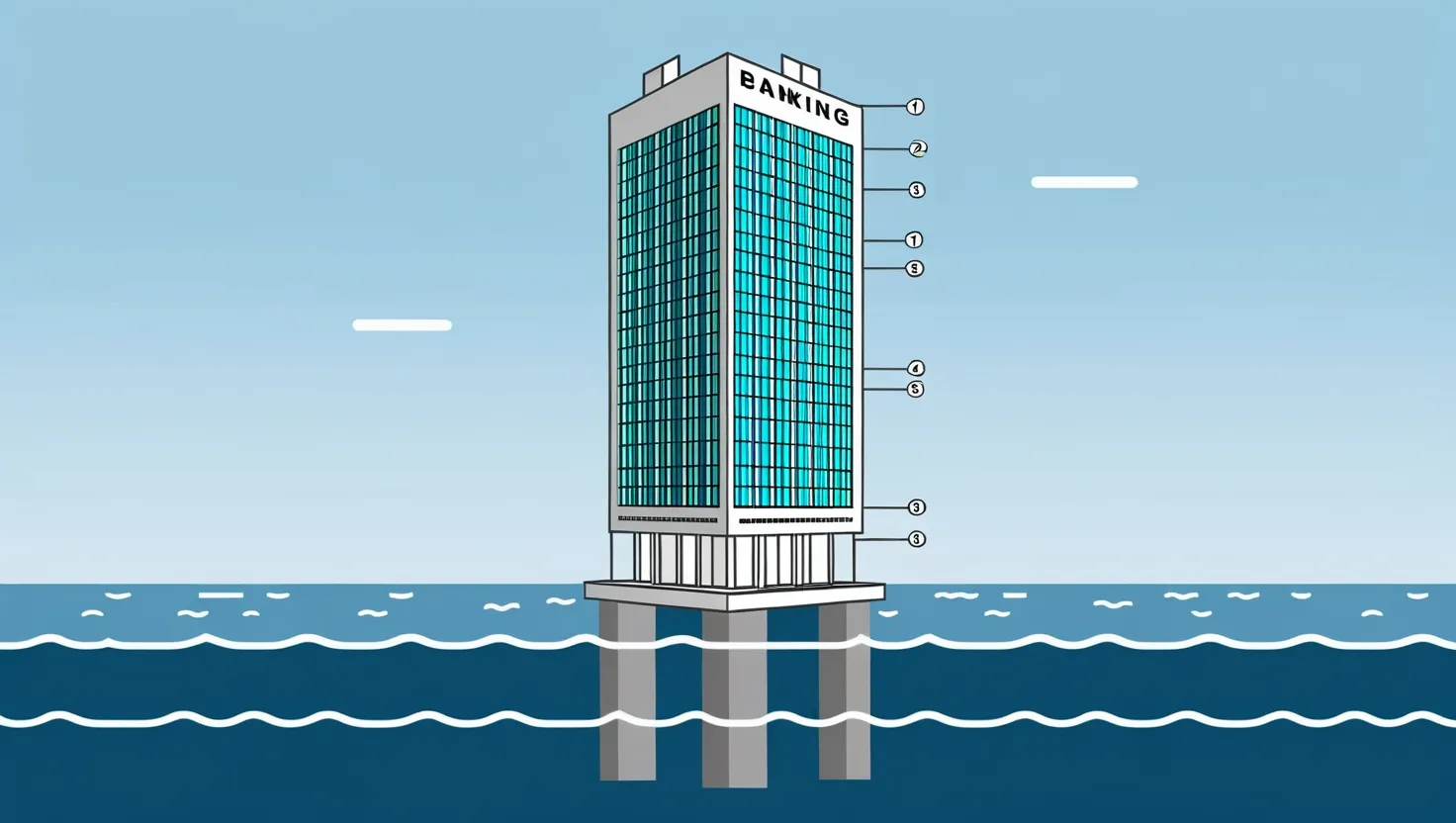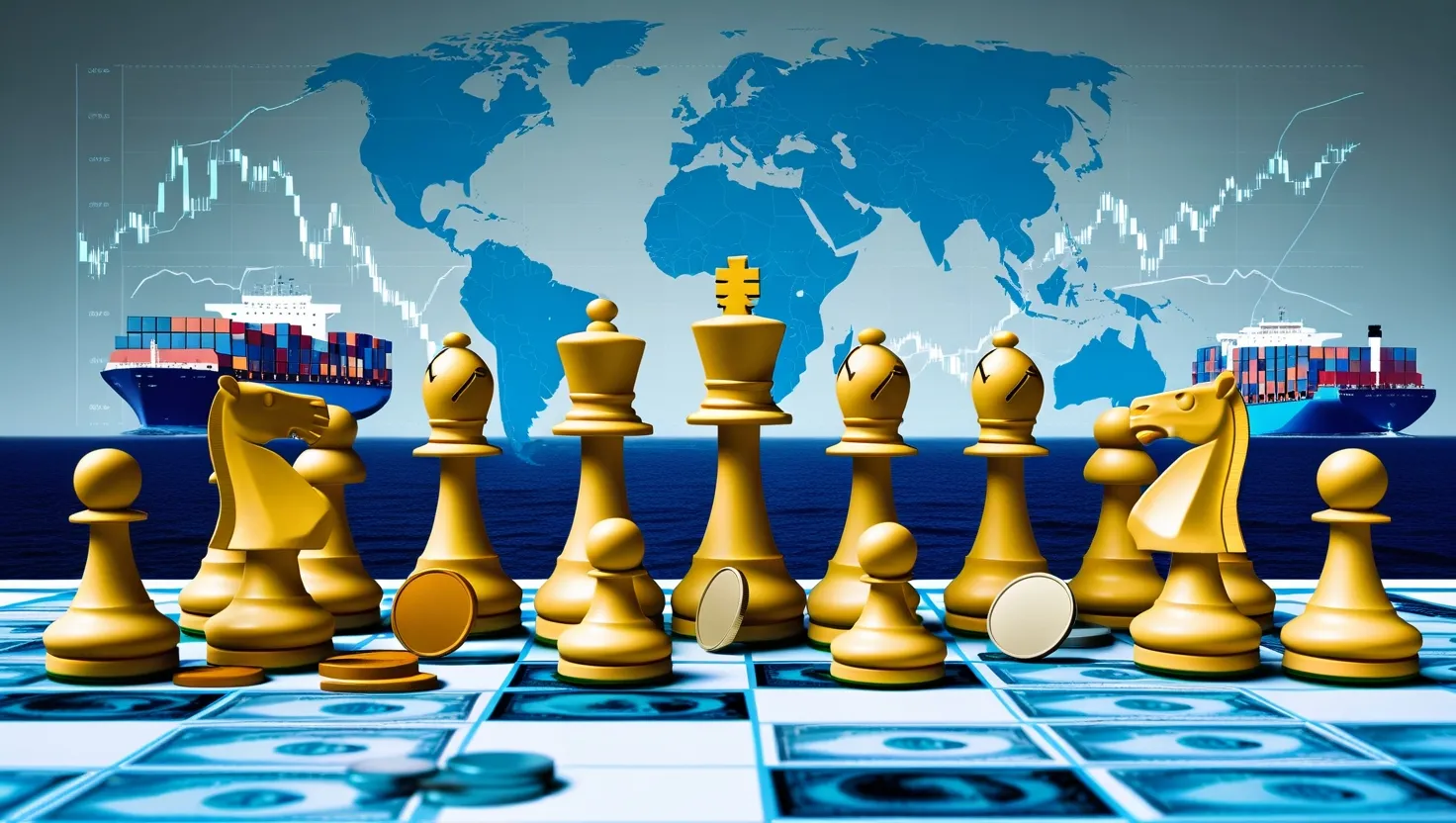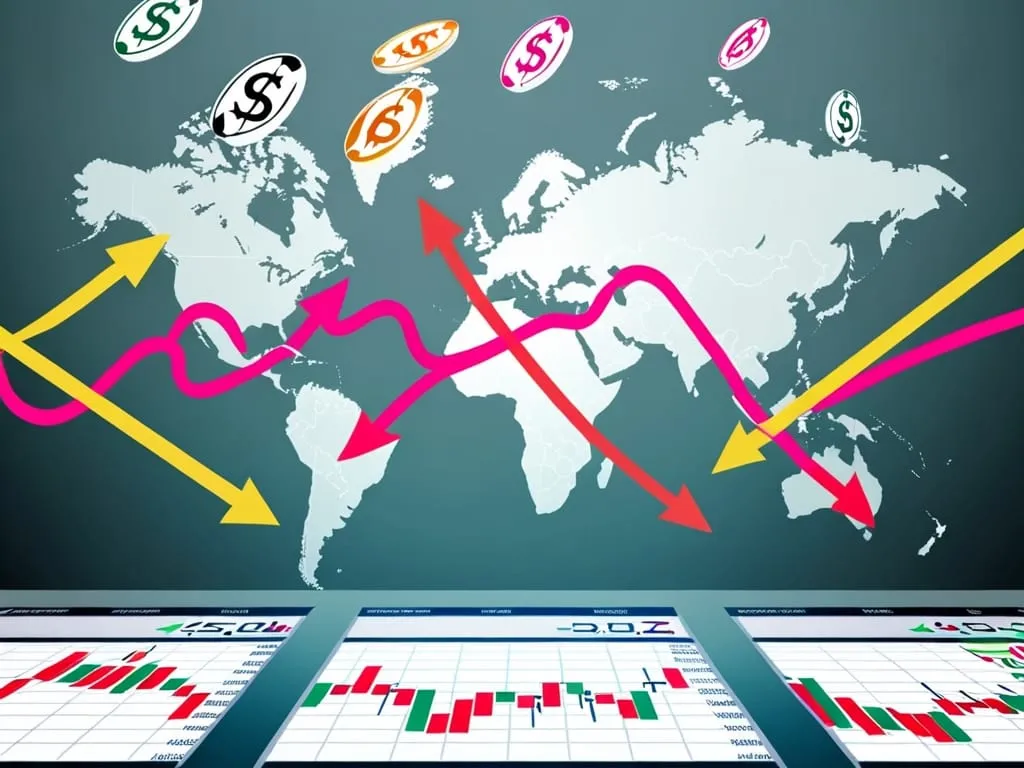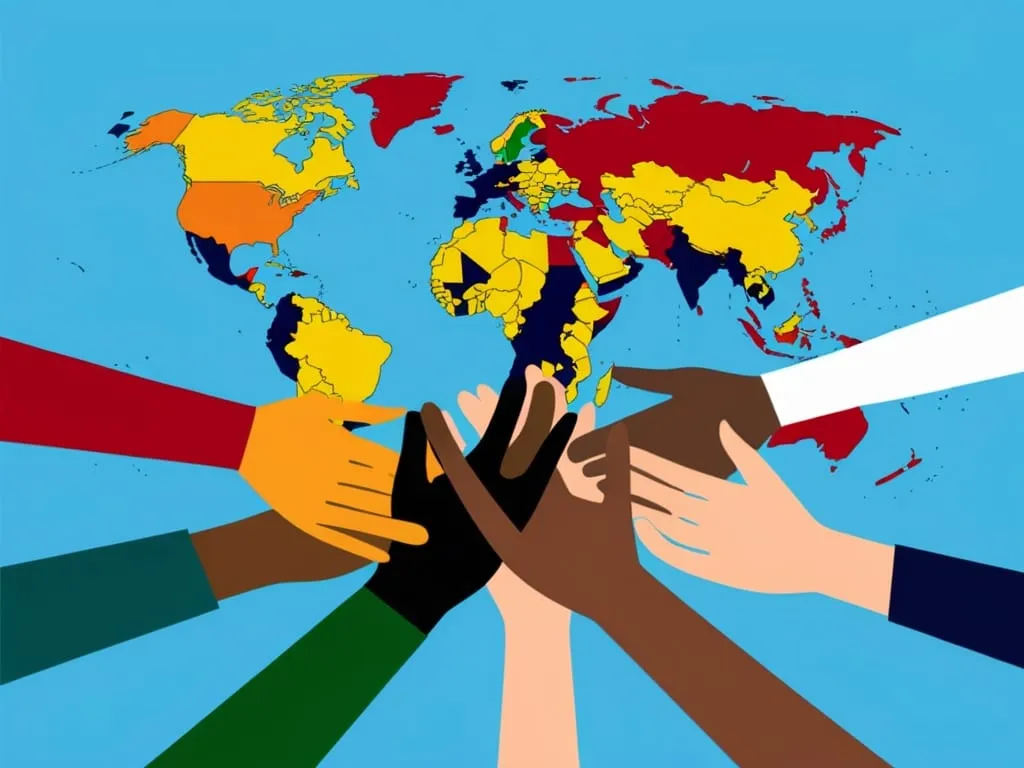In the intricate web of global governance, several international organizations stand out for their pivotal roles in shaping the world we live in. Among these, the World Trade Organization (WTO), the International Monetary Fund (IMF), the World Health Organization (WHO), and the United Nations Security Council are particularly influential. Let’s delve into how these entities drive global change, mediate conflicts, and address some of the most pressing challenges of our time.
The World Trade Organization: A Guardian of Global Trade
When trade disputes arise, the WTO steps in as a critical mediator. Its dispute settlement mechanism is designed to resolve conflicts between member countries in a fair and timely manner. Imagine two nations locked in a heated argument over tariffs; the WTO’s role is to provide a structured process to resolve this dispute, ensuring that trade flows smoothly and that all parties adhere to the agreed-upon rules.
The process begins with consultations between the disputing parties, a diplomatic effort to find common ground. If this fails, a panel is established to hear the case, and their report can be appealed to the Appellate Body, a standing body of seven experts who review the legal aspects of the dispute. This system is not just about resolving individual disputes but also about maintaining the integrity of the global trading system.
However, the WTO’s dispute settlement process is not without its challenges. The Appellate Body, for instance, has faced criticism for its slow pace and the complexity of its procedures. Despite these issues, the WTO remains a cornerstone of international trade, ensuring that countries comply with their commitments and fostering an environment where trade can flourish.
The International Monetary Fund: Stabilizing Global Finances
In the realm of global economics, the IMF plays a crucial role in promoting financial stability and cooperation. Founded in the aftermath of World War II, the IMF’s primary mission is to support economic policies that enhance productivity, job creation, and overall economic well-being.
The IMF’s toolkit includes loans and technical assistance for countries facing economic crises. It engages in regular policy dialogues with its member countries, assessing economic conditions and recommending policies to foster sustainable growth. This proactive approach helps prevent financial crises and supports countries in their recovery efforts.
One of the lesser-known aspects of the IMF is its role in providing concessional financial assistance to low-income countries. These programs are designed to help these nations address balance-of-payments problems and implement structural reforms that can lead to long-term economic stability.
Despite its successes, the IMF has faced criticism, particularly regarding the influence wielded by its major shareholders, such as the United States and European countries. This has led to calls for reforms to make the IMF more inclusive and representative of its diverse membership.
The World Health Organization: A Champion of Global Health
In the domain of global health, the WHO is a beacon of hope and coordination. Established in 1948, the WHO’s mission is to promote health, keep the world safe, and serve the vulnerable. Its influence extends from setting global health policies to coordinating responses to health crises.
One of the WHO’s most significant contributions is its role in combating infectious diseases. From polio to COVID-19, the WHO has been at the forefront of global health responses, providing technical assistance, coordinating international efforts, and setting standards for health care.
The WHO also plays a critical role in promoting health equity and access to healthcare. It works tirelessly to ensure that all countries, regardless of their economic status, have the resources and knowledge to improve the health of their populations. This includes initiatives to strengthen health systems, improve access to essential medicines, and address the social determinants of health.
However, the WHO is not immune to challenges. It has faced criticism for its response to certain health crises and the limitations of its funding model. Despite these challenges, the WHO remains a vital institution in the global health landscape.
The United Nations Security Council: A Guardian of Peace
At the heart of international peace and security lies the United Nations Security Council (UNSC). Comprising 15 members, including five permanent members with veto power, the UNSC is tasked with maintaining international peace and security.
The UNSC’s peacekeeping efforts are perhaps its most visible role. From the Congo to Cyprus, UN peacekeepers have been deployed to conflict zones around the world to protect civilians, facilitate humanitarian aid, and support the transition to peace. These missions often operate in perilous conditions, requiring a delicate balance between military presence and diplomatic engagement.
One of the lesser-known aspects of the UNSC is its role in imposing sanctions and arms embargoes. These tools are used to pressure countries to comply with international law and to prevent the proliferation of weapons. While these measures can be effective, they also raise complex ethical questions about their impact on civilian populations.
The UNSC has faced its share of criticisms, particularly regarding the veto power held by its permanent members. This has led to calls for reform to make the Council more representative and responsive to the needs of all UN member states.
Shaping International Policies and Addressing Global Challenges
These international organizations do not operate in isolation; they often collaborate to address the complex challenges facing the world. For instance, the WTO and IMF work together to ensure that trade policies are aligned with economic stability goals. The WHO collaborates with the UNSC to address health crises in conflict zones.
One of the key challenges these organizations face is adapting to changing global dynamics. The rise of new economic powers, the increasing complexity of global health issues, and the evolving nature of conflicts all demand innovative responses. Here, the ability of these organizations to evolve and adapt is crucial.
Successes, Criticisms, and Potential Reforms
Each of these organizations has its share of successes and criticisms. The WTO has successfully resolved numerous trade disputes, but it faces challenges in its dispute settlement process. The IMF has helped many countries navigate economic crises, but it must address concerns about its governance and inclusivity. The WHO has made significant strides in global health, but it needs to improve its response to health emergencies. The UNSC has maintained peace in many regions, but it must reform to become more representative and effective.
Potential reforms are often discussed but rarely implemented. For the WTO, streamlining its dispute settlement process could enhance its effectiveness. For the IMF, increasing the representation of developing countries in its decision-making processes could make it more inclusive. For the WHO, securing more stable funding could enhance its ability to respond to health crises. For the UNSC, limiting the use of veto power or expanding its membership could make it more representative.
Influence on Developing Nations and Sustainable Development
These organizations have a profound impact on developing nations. The WTO’s trade agreements can open up new markets for these countries, but they also risk exposing them to unfair competition. The IMF’s financial assistance can help these nations stabilize their economies, but the conditions attached to these loans can be stringent.
The WHO’s health initiatives are often tailored to the needs of developing countries, providing them with critical support in improving their health systems. The UNSC’s peacekeeping missions can bring stability to conflict-ridden regions, but they must be careful not to impose solutions that are not sustainable in the long term.
In promoting sustainable development, these organizations play a vital role. The WTO’s trade policies can support sustainable trade practices. The IMF’s economic policies can encourage sustainable growth. The WHO’s health initiatives can improve the well-being of populations, a key component of sustainable development. The UNSC’s peacekeeping efforts can create the stability necessary for sustainable development to flourish.
Conclusion
In a world fraught with challenges, these international organizations are indispensable. They mediate conflicts, address global health crises, stabilize economies, and maintain international peace and security. While they face numerous challenges and criticisms, their contributions are undeniable.
As we look to the future, it is clear that these organizations must continue to evolve and adapt. They must become more inclusive, more responsive to the needs of all member states, and more effective in addressing the complex challenges of our time. In doing so, they will remain vital pillars of global governance, driving change and promoting a more stable, equitable, and prosperous world for all.
